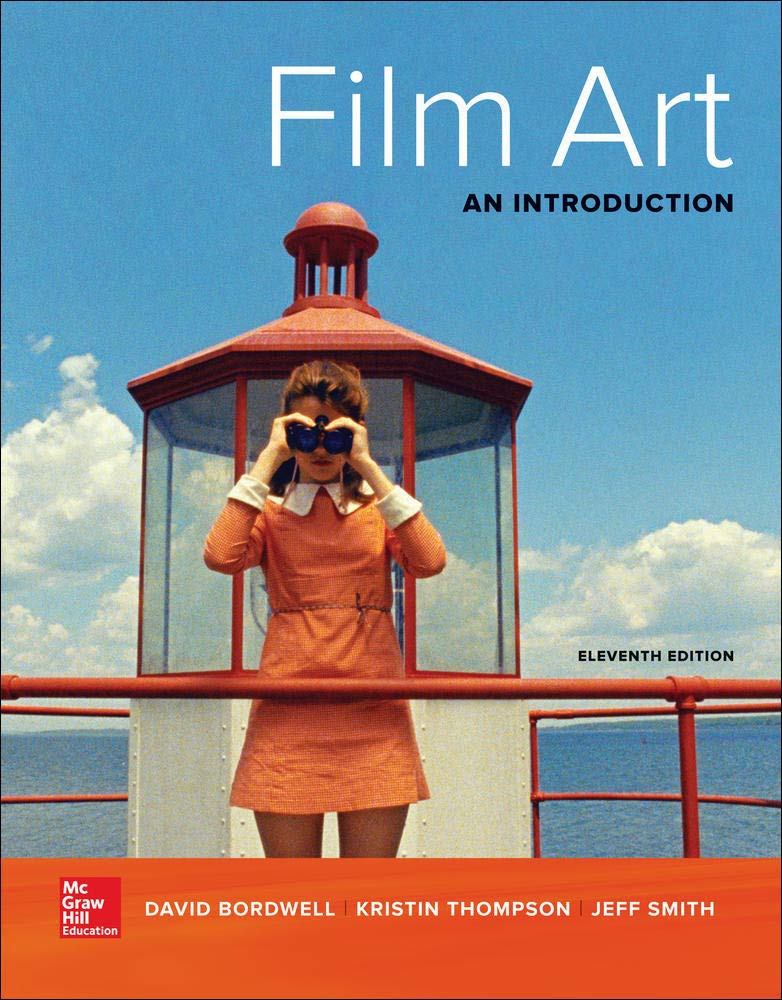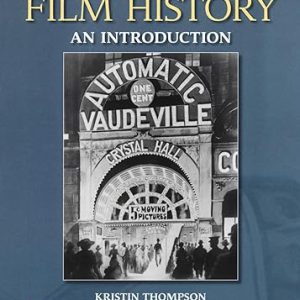Description
Editorial Reviews
About the Author
Music (1998) and Film Criticism, the Cold War, and the Blacklist: Reading the Hollywood Reds (2014). He has also published several articles and book chapters on the role of sound and music in American cinema. He is currently at work on a book that traces development of the classical Hollywood film score during the 1930s that examines how studios allocated musical resources to films based on their position within the hierarchy of prestige pictures, programmers, and “B” films.
David Bordwell is Jacques Ledoux Professor Emeritus of Film Studies in the Department of Communication Arts at the University of Wisconsin–Madison. He also holds a Hilldale Professorship in the Humanities and an Honorary Doctorate from the University of Copenhagen. He has also held the Kluge Chair in Modern Culture at the Library of Congress. His books include Narration in the Fiction Film (University of Wisconsin Press, 1985), On the History of Film Style (Harvard University Press, 1997), Planet Hong Kong: Popular Cinema and the Art of Entertainment (Harvard University Press, 2000; 2nd ed., Irvington Way Institute Press, 2011), Figures Traced in Light: On Cinematic Staging
(University of California Press, 2005), The Way Hollywood Tells It: Story and Style in Modern Movies (University of California Press, 2006), The Rhapsodes: How 1940s Critics Changed American Film Culture (University of Chicago Press, 2016), and Reinventing Hollywood: How 1940s Filmmakers Changed Movie Storytelling (University of Chicago Press, 2017). He has also written books on Carl Theodor Dreyer, Yasujiro Ozu, Sergei Eisenstein, digital cinema, and Hong Kong film.
Kristin Thompson is an Honorary Fellow in the Department of Communication Arts at the University of Wisconsin―Madison, where she earned her Ph.D. Her books include Eisenstein’s Ivan the Terrible (1981), Exporting Entertainment: America’s Place in World Film Markets 1901–1934 (1985), Breaking the Glass Armor: Neoformalist Film Analysis (1988), Storytelling in the New Hollywood: Understanding Classical Narrative Technique (1999), Herr Lubitsch Goes to Hollywood: German and American Film after World War I (2005), and The Frodo Franchise: The Lord of the Rings and Modern Hollywood (2007).










Emily D –
When I got this book it was around $60 on amazon to buy, and at my school’s bookstore they were selling it for $150-$200. This was one of the most effective purchases I have ever made, not only for the price but the extremely extensive and real life information this book provides. Perfect for a first year film student, or anyone curious in the art.
Julie –
Up to date and interestingly written! Highly recommend for film enthusiasts.
Jenny –
It was old and bent. The book wouldn’t stay closed. However it was cheap and readable so I was able to use it.
Brenden G. –
Received book today. The front and the back cover are both ripped up. Have rented books before and they weren’t in this rough of shape. I guess that is what is expected as it is a rental
russ –
Great book and great service by amazon etc
LF –
Several pages were completely stuck together with what I can only assume was binding glue. Unable to separate without destroying said pages. Very irritating when you have a quiz on that missing information the next day! I can only hope I don’t run into any more glued pages.
Deandre Lee Flowers –
I needed it quick and as soon as possible and boom! It came so no problems here.
Marta Sanchez Calvo –
Such an amazing book to learn from
ECM –
A decent book
It is a hard read, and there are a lot of movies that you need to watch to follow along with the book. I lost my attention span reading this book, and I think there are much better books out there to discuss the making of movies.
A WWB Production, Inc. –
The only cinematic studies reference material you’ll ever need!
This book includes every relevant reference to Film history, development, genre and technique you will ever need!